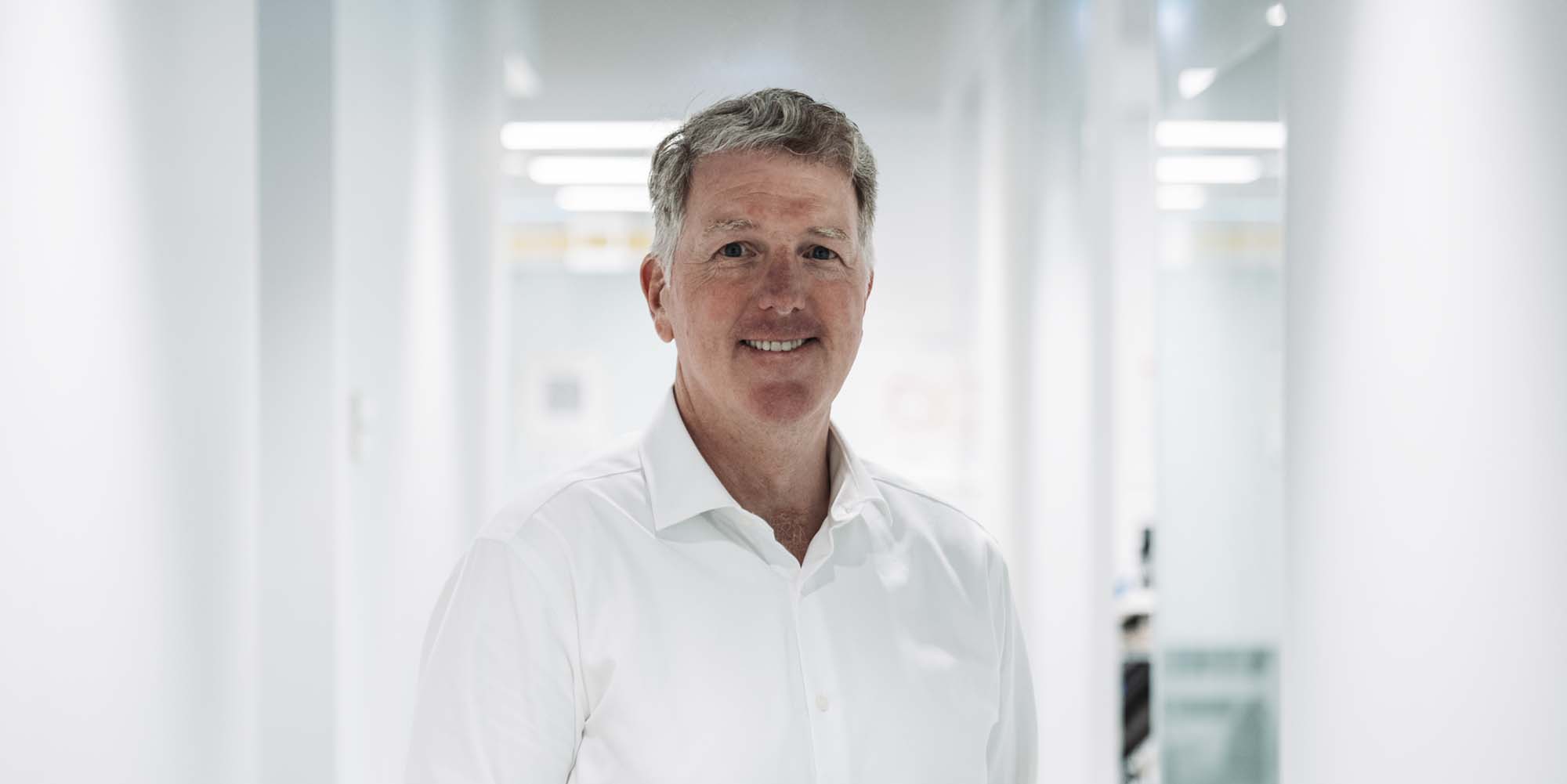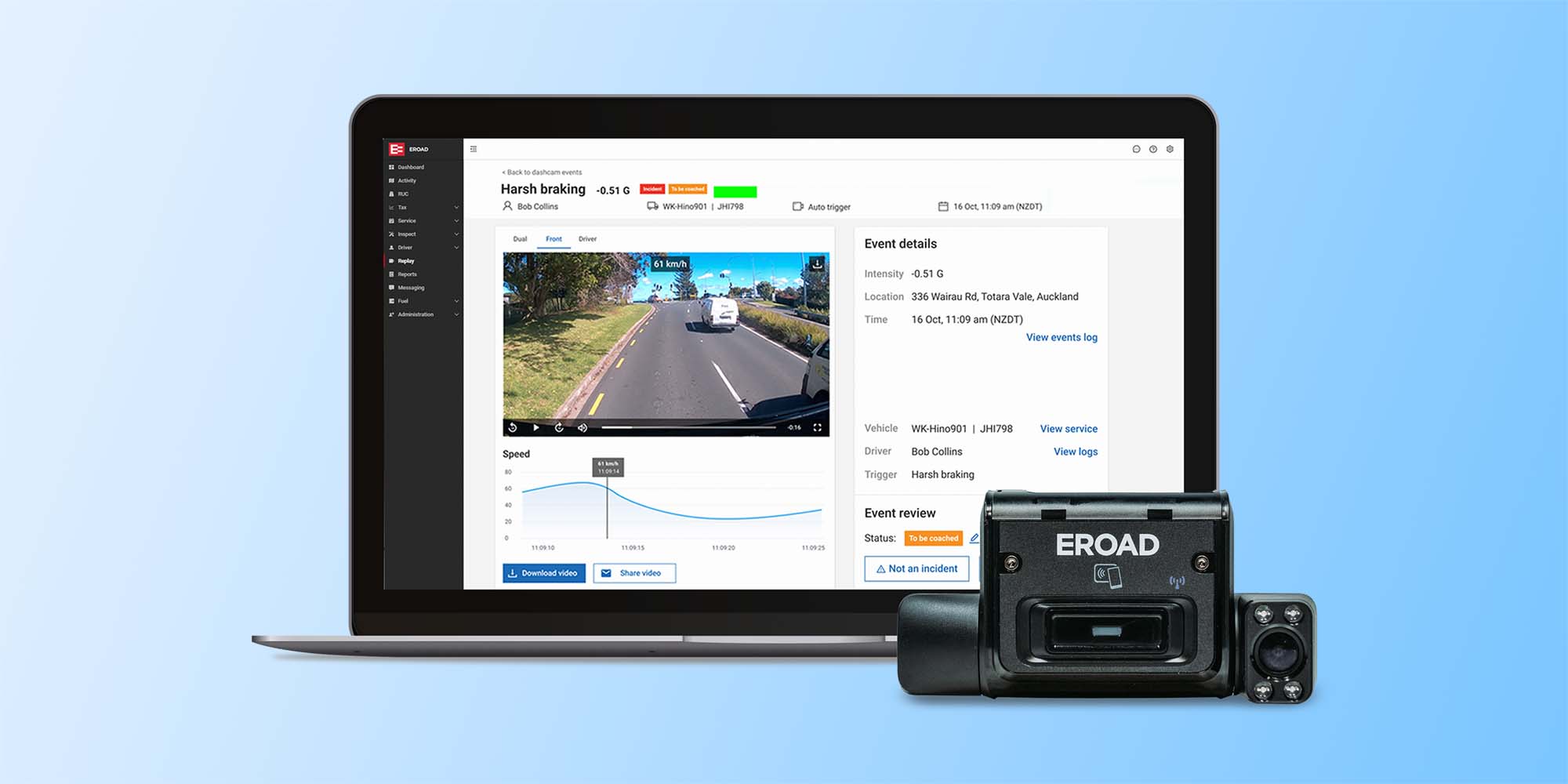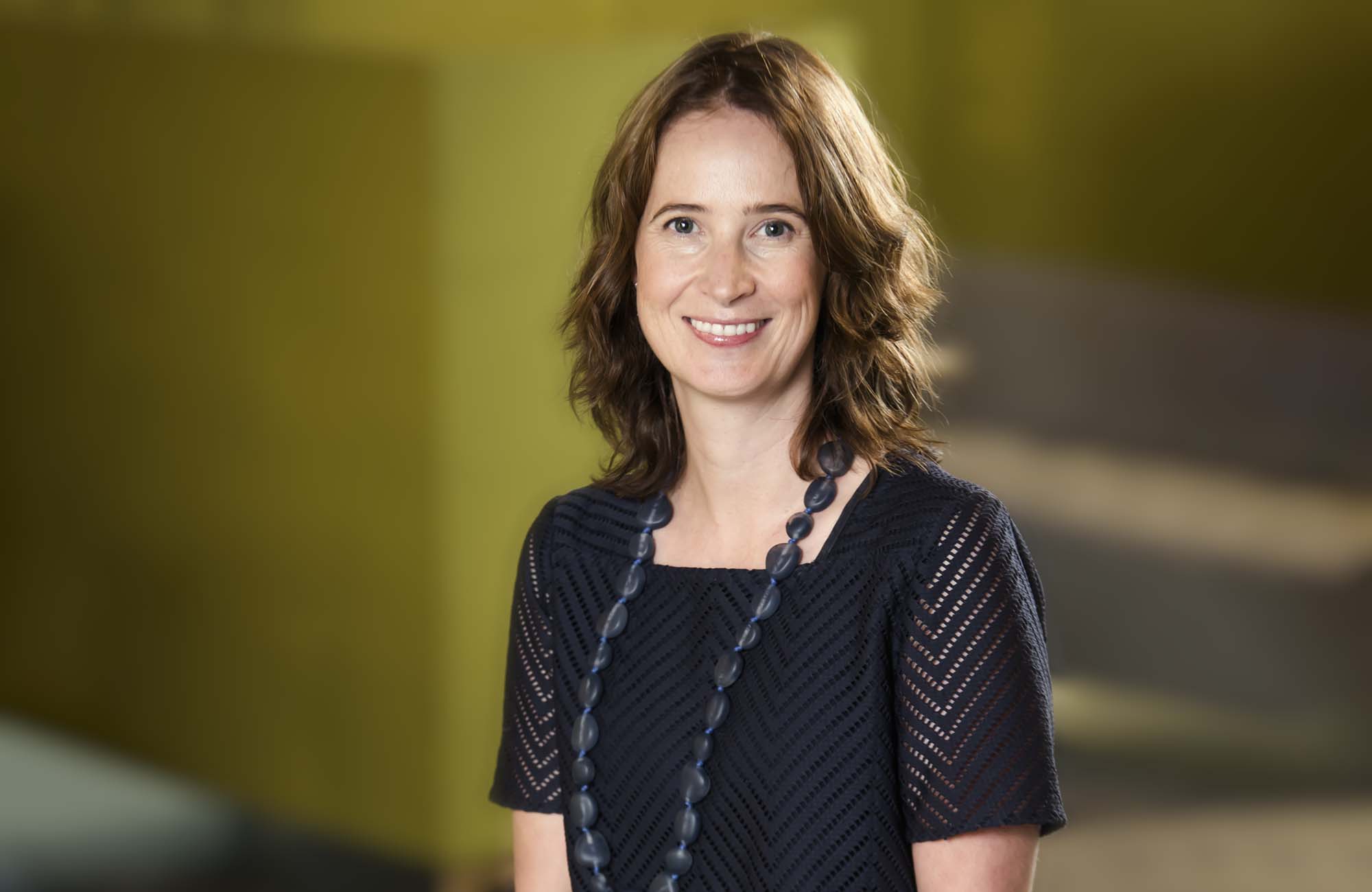Do you have a question? Want to learn more about our products and solutions, the latest career opportunities, or our events? We're here to help. Get in touch with us.
Do you have a question? Want to learn more about our products and solutions, the latest career opportunities, or our events? We're here to help. Get in touch with us.
We've received your message. One of our experts will be in touch with you soon.

The fleets of trucks and vans that keep our economy moving have joined the Internet of Things revolution.
Telematics terminals, many of them provided by Auckland start-up EROAD, track the speed and location of thousands of vehicles on our roads and highways, helping promote safer driving and reducing emissions through more efficient route planning.
“We process more data on an average day across the fleets we monitor than the New Zealand banking sector does on Christmas Eve,” says Tim Hogan, Chief Technology Officer at EROAD, a pioneer of electronic road user charges (eRUC), which automate the management, purchase and display of road user licences.

While EROAD has been a customer of Datacom's for years, in 2019 it sought to broaden the relationship as it planned key new products and a bigger push into the Australian and North American markets. EROAD began drawing on Datacom's expertise and development resources to augment its in-house product development.
“We wanted to have fewer, more important, strategic relationships with vendors and partners and lean into those, making them much more than just transactional,” explains Hogan.
It led to a new type of partnership that saw Datacom staff join hybrid Agile product development ‘squads' at EROAD on an ongoing basis, with the team flexing in size as EROAD’s requirements changed.
“They would wear an EROAD t-shirt, be aligned with our company culture and product mission and jointly develop the same agile ways of working,” says Hogan.
In addition, Datacom would have strategic input into EROAD’s technology roadmap and the deal would be structured with financial incentives to emphasise the long-term success of the collaboration.
“This is how we like to work,” says Warrick Flower, General Manager of Digital Engineering at Datacom.
“We take the time to understand the customer’s needs and what the product deliverables need to be. Then we can help customers reach their goals.”
“Being successful did not mean defining a regimented plan based on very strict criteria, particularly in the face of Covid.
“The breadth of our capability meant we were able to help EROAD with native mobile app development, through to security and AWS cloud architecture,” adds Flower.
The new way of working started with EROAD’s leadership team sharing its vision and goals for the new hardware and software platform development.
“Datacom led a series of workshops at the outset which helped set the right tone, mindset and definition for the project,” says Hogan.
Within months, several agile hybrid squads had been established to work on products, including the EROAD Clarity Solo Dashcam, an innovative device combining a dashboard-mounted camera with EROAD’s telematics capabilities.

Datacom helped EROAD understand the true value of delivery-oriented roles like business analysts and scrum masters, says Jacob Holden, Software Development Manager at EROAD.
“They showed us what those roles can look like to produce the best results,” he says.
“With the sheer volume of projects we were working on, I valued Datacom’s ability to ask the right questions to set up a project for success. There are quite a few lessons I’ve learned from the Datacom playbook.”
The Clarity Solo Dashcam was EROAD’s first product based on the Android operating system and drew on the Datacom teams’ knowledge of the platform as well as its project management expertise.
“Datacom was looking across all the teams and could see patterns or provide sophisticated insights,” says Hogan.
“They also helped define the architecture and the user experience and Datacom’s expert facilitation was invaluable.”
Clarity Solo Dashcam has been a big success for EROAD. But as it hit the market, EROAD - which is publicly listed on both the NZX and ASX - was planning an even bigger move, a merger with fellow Auckland telematics start-up Coretex.
The two companies had largely complementary products and customer bases. But a large amount of technical due diligence was required ahead of the deal progressing. Datacom’s expertise was again tapped to help with the due diligence process.
“By bringing in Datacom, we were able to compartmentalise highly sensitive data and tap expertise in technologies that would be important to the merger succeeding,” Hogan says.
Within six weeks, Datacom had undertaken a detailed analysis that refined the merger plans and informed EROAD’s board of directors. The merger - one of the largest in New Zealand’s tech sector in recent years - was finalised in December 2021, giving EROAD an installed base of over 200,000 vehicle terminals and bringing safer and more sustainable transport to its three core markets - New Zealand, Australia and North America.

For Sarah Thompson, EROAD’s Chief product Officer and a 20-year veteran of the IT industry, the model of collaboration with Datacom is one of the most successful she has seen.
“If you are just looking for a body shop to gain access to people, there are cheaper ways to do it,” she says.
“But a really good partnership is about holding each other to account and helping each other to grow. Datacom helped us get to the next level of maturity in our business.”
“I remain committed to this hybrid team model,” says Hogan.
“We’ve put an effective financial framework in place that allows us to move quickly and access the talent we need, while limiting the overhead around decision making.”
Most importantly, the collaboration means EROAD is able to get products to market faster.
“It's true in many businesses that our chief competitor is time. Our customers and our markets expect us to move really quickly,” says Hogan.
“Our financial performance is linked to the pace at which our engineering teams’ can deliver,” he points out.
“What we’ve achieved with Datacom is the ability to meet our ambitious product release targets, with the additional flexibility and access to expertise that ultimately reduces our costs over time.”